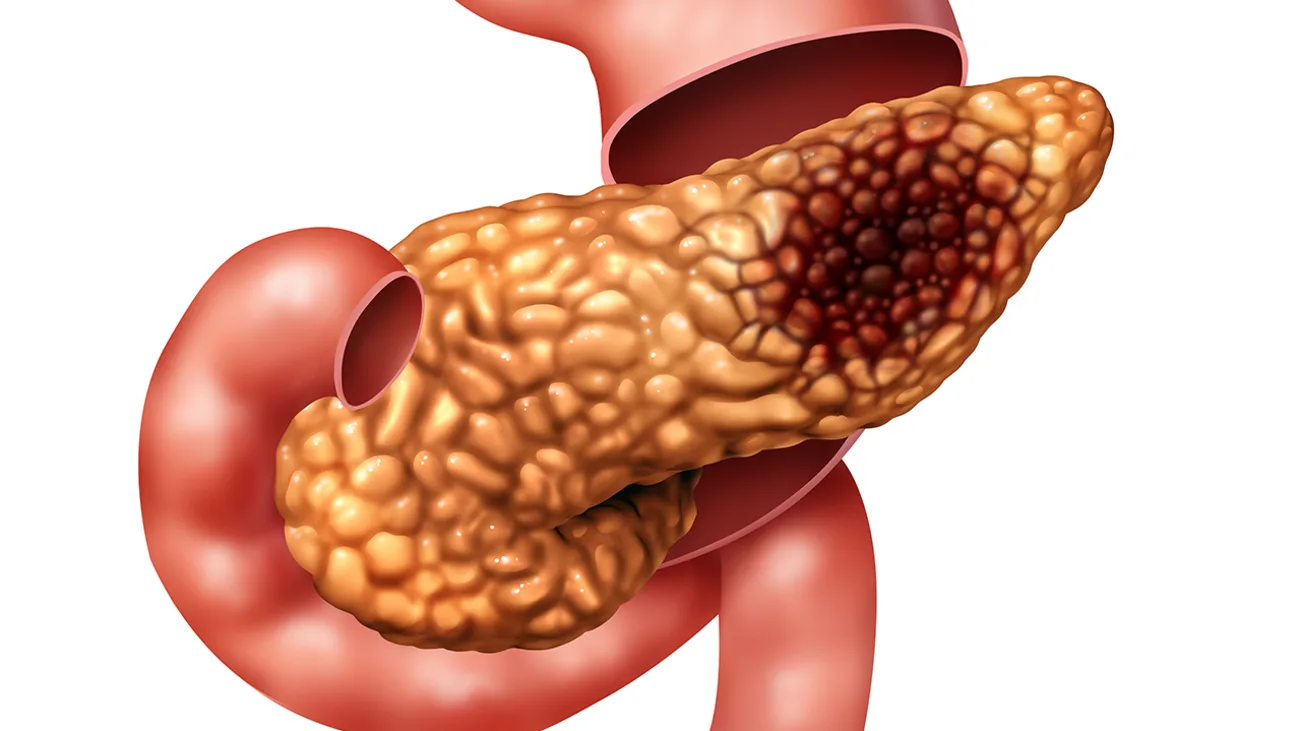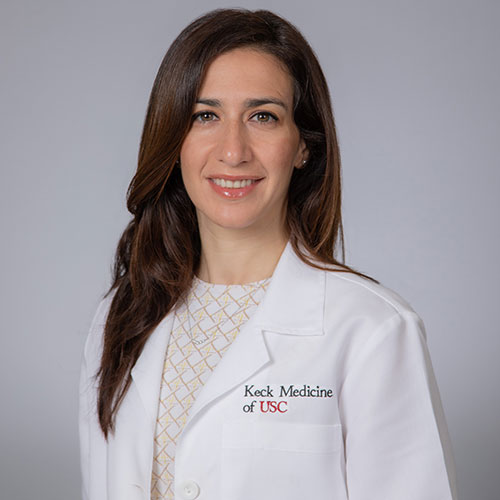
Keck Medicine of USC researchers are investigating whether performing chemotherapy followed by a novel type of surgery is a viable treatment for patients with locally advanced pancreatic cancer.
A clinical trial from Keck Medicine of USC aims to provide a surgical solution for patients with a form of advanced pancreatic cancer previously considered inoperable.
The study will investigate if chemotherapy followed by a novel type of surgery to remove the cancer is a safe and effective option for patients with locally advanced pancreatic cancer, meaning that the cancer has not spread to other organs but has grown into or close to nearby blood vessels that surround the pancreas.
Surgery typically can’t remove tumors of this type because of the risk of damaging the blood vessels, which supply blood to the stomach, liver and other abdominal organs. However, specialists at the USC Norris Comprehensive Cancer Center, part of Keck Medicine, are now researching whether patients with locally advanced cancer can be candidates for successful surgery and see improved outcomes.
The challenge of treating pancreatic cancer
Pancreatic cancer accounts for only about 3% of cancers in the United States, but it is one of the deadliest types. People usually have no symptoms until the cancer has become very large or metastasized throughout the body, so the cancer is often caught late, and patients have poor prognoses.
Only 13% of pancreatic cancer patients survive five or more years after diagnosis.
The life expectancy of patients with locally advanced pancreatic cancer, which accounts for one-third of all pancreatic cancer cases, has historically been about one year.
For most forms of cancer, surgery is considered the most effective treatment for localized tumors that have not spread to other areas of the body. However, surgery has traditionally not been offered for tumors involving the blood vessels near the pancreas because if the blood vessels were to become damaged during the procedure, and the blood flow to organs interrupted, it could result in serious side effects or death.
Therefore, typically the only treatment option for patients with locally advanced cancer is chemotherapy and/or radiation, both of which have limited effectiveness killing pancreatic cancer cells.
“The situation is frustrating because research shows that in the rare cases where locally advanced tumors were safely removed, the progression of the disease was slowed and the patient’s length of survival on average increased from one year to 28 months, more than doubling life expectancy,” said Sandra Algaze, MD, a medical oncologist with Keck Medicine, a member of USC Norris and one of the study’s investigators. “Surgery, therefore, appears to strongly benefit a patient’s survival rate, which is why the medical field has been eager for a surgical solution.”

How new surgical advances can benefit patients
The clinical trial will use surgical protocols pioneered by Keck Medicine surgeons to safely remove locally advanced pancreatic tumors attached to arteries.
Patients in the clinical trial will first undergo chemotherapy to attempt to shrink the tumor. Two to eight weeks after completing chemotherapy, they will undergo a laparoscopic evaluation to determine the position and size of the tumor before the tumor is surgically removed and involved blood vessels are removed and reconstructed.
Patients will be followed every three months for the first year post-surgery and then every six months for two years after that.
The clinical trial will also examine if certain biomarkers, such as the tumor’s DNA, as well as a patient’s demographic factors such as age and gender, play a role in patient outcomes.
The study hopes to enroll 20 patients with locally advanced pancreatic cancer who have evidence of arterial involvement by their tumors. The surgeries will be performed at Keck Hospital of USC.
USC Norris Comprehensive Cancer Center
For nearly 50 years, the USC Norris Comprehensive Cancer Center has made it our mission to treat and prevent cancer. We are an original National Cancer Institute (NCI)-designated cancer center and a well-established leader in cancer research. Our renowned doctors and specialists use the latest cancer detection, prevention and treatment options to get patients the care they need at each step of their cancer journey. Through our research, we bring patients the most advanced therapies available and aim to make cancer a disease of the past.
Topics
